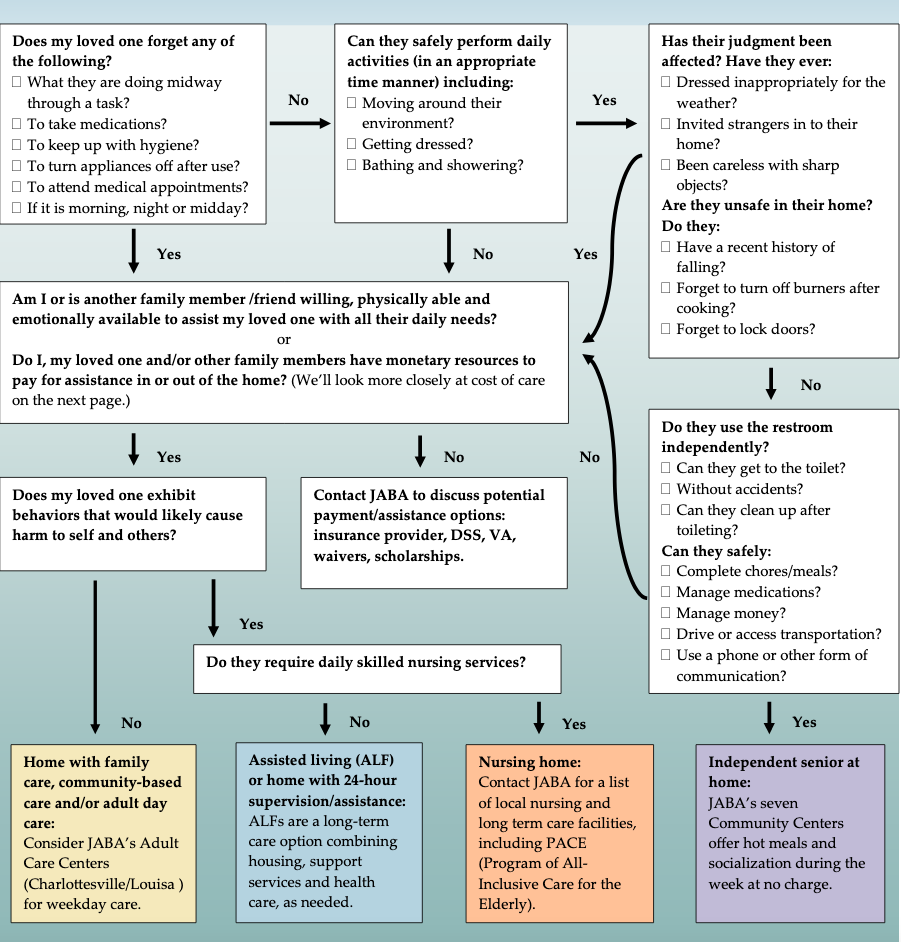C-Ville Weekly - We've been hearing about the "Sandwich Generation" for some time: people, mostly women, caring for children under 18 and older relatives at the same time. But it has now reached a point, according to a Pew Research Center survey conducted in October 2021, where nearly a quarter of adults in the country (23%) are dealing with this situation. And that percentage is expected to increase. By 2040, nearly 1 in every 5 people in Virginia will be older than 65. Meanwhile, weak parental leave policies, a lack of subsidized child care, and the increasing cost of elder care (along with a shortage of care professionals) are putting the squeeze on the Sandwich Generation.
For example, UVA employees who pay for a long-term care benefit through Genworth are in for a shock this October. Under pressure from insurance companies, the Virginia State Corporation Commission approved a 51.9% increase in their long-term care premium costs. For others with long-term care insurance in Virginia, the premium increases have been even greater, as much as 150% for some. Why the increases? Because insurance companies understand what 1 in every 5 people in Virginia being older than 65 means – more people are going to need expensive care, and more claims. The federal government has recognized the problem as well, recently passing the Inflation Reduction Act, which will cap prescription drug costs at $2,000 out-of-pocket annually for Medicare recipients and allows seniors earning less than 150% of the federal policy level to receive the full low-income subsidy benefit. Previously, seniors earning that amount received only partial benefits. But many feel more needs to be done.
"This is only a first step in the right direction,” said Avenel Joseph, vice president for policy at the Robert Wood Johnson Foundation, after the Act was signed into law by President Biden. "Congress must renew efforts to extend the expanded Child Tax Credit, create a national paid family and medical leave standard, create affordable and stable housing, and, finally, provide health insurance for those left behind in states that haven’t expanded Medicaid."
Unfortunately, for too long we have normalized the idea that it's a family's responsibility to take care of their own, but family dynamics have changed -- people are having children later, and have been for some time, and overall family size in our country has been growing smaller. Many parents and families simply don't have the time or the financial resources to care for children and aging relatives at the same time. And while plenty of middle-class families are feeling the strain of this, the dynamic falls especially hard on poor and marginalized people in our society.
Never mind the emotional strain of caring for people we love. Never mind being torn between the responsibility of addressing the needs of your child and the obligation to care for a parent who once cared for you.
"Nothing can be hidden from me, because I'm managing everything," a mother in Maine who lives with her aging parents and two teenage daughters told Parents Magazine recently. "On my bluer days, I feel extremely squeezed and scattered at the same time."
"Emotional labor requires our whole being," said Jessica Stern, Ph.D., a psychology researcher at the University of Virginia, in the same article. "It asks us to be emotionally regulated ourselves, to have emotional intelligence about other people, and to have a lot of self-control."
Indeed, experts agree - without community and government support, an emphasis on self-care, and a willingness to share feelings about the struggles of caregiving, the potential for caregiver burn-out only increases.
So what can those in the Sandwich Generation do now? Reach out for help, be sure to take care of yourself first, and advocate for change.
David McNair handles communications, media relations, and social media efforts for JABA. This artcile originally appeared in C-Ville Weekly’s Gen Now special section.



